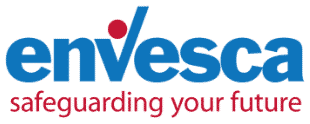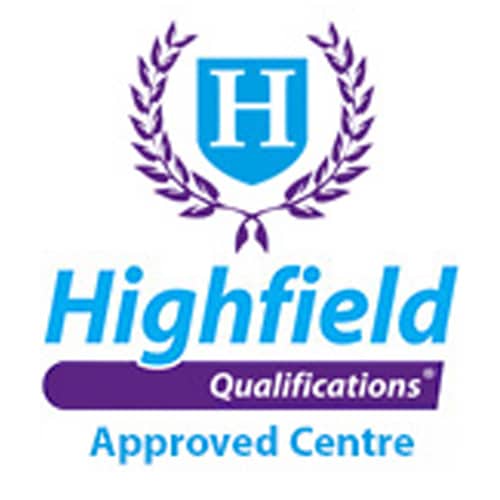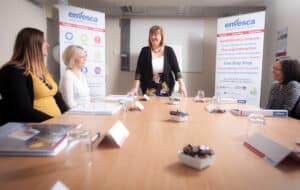How To Improve Waste Management In A Business
Waste is anything your business handles or produces that is not wanted or required and intends to discard. We are often asked “how to improve waste management”, in this article we share some practical ways you can reduce, reuse and recycle your waste.
Disposing of waste can have a significant impact on the environment as well as the profits of your business. The cost of sending waste to landfills is only going to increase over the next few years, especially with the rapid progress of technology making electronic goods redundant in a progressively shorter timescale.
Producing excessive amounts of waste is often a sign that your business processes may be inefficient. It is in your interest to identify ways of reducing the amount of waste your business generates.
There are three main ways to tackle waste, known as the “three R’s”: reduce, reuse, and recycle. This mantra has been around for a number of years now, but how good is your business at following it? Most businesses have got the hang of recycling, but that is actually the least effective way to reduce waste.

Reduce
This is the most effective of the “three R’s” as it means using fewer resources in the first place. It not only cuts down on waste but also on the initial outlay of energy that is required to produce said resources.
To successfully reduce your business’s resource consumption you should look to your procurement strategies. There are lots of ways to “reduce”:
- Choose materials that come with minimal packaging.
- Interrogate your waste allowance. Do you really need to add on an extra 10% for waste or can you work more efficiently and reduce the figure to 5%?
- Think about spending more, better quality products last longer.
- Research the specification. For example, it may be worth spending more on IT equipment that will still be able to run software in two years’ time rather than cheaper, lower-spec items that do not have the processing power to accommodate software changes.
- When procuring transport, such as company cars, think about longevity, service requirements and fuel consumption.
- Buy recycled goods where possible.
You should also educate your workforce to be more careful with company resources. Everyone raises an eyebrow at talk of paperless offices, but now with tablet computers and smartphones, it is more of a reality.
Paper forms can now realistically become eForms with check boxes sent directly to cloud storage, cutting down on administration time as well as material resources. If you are in the food and catering industry look at how leftovers can be used or how you can avoid them in the first instance.
Do consider though that in some cases replacing old equipment may actually be more environmentally friendly in the long run. Keeping fuel-guzzling vehicles with high emissions or energy-hungry appliances in order to avoid waste, is not necessarily the best option. Do your research!
Re-Use
Perhaps the least glamorous of the “three R’s” is, reuse is all about preventing old resources from entering the waste stream whilst reducing the need for new resources to be purchased.
It isn’t necessarily your business that needs to reuse the items. Think about selling old IT equipment (after properly erasing sensitive data), vehicles and plant or even furniture. An alternative to selling is to look for charities that may benefit from your unwanted resources or even rehoming your unwanted stuff with employees.
Within the workplace encourage your staff to reuse things like stationery. Everyone loves having shiny new folders and notebooks, but in reality, this is very wasteful. New labels can be printed for old folders or write on folder spines in pencil so it is easy to rename them. Paper that has been printed on one side only that would otherwise go for waste can be bound together into scribble pads, obviously, check for sensitive information first. Going even further, empty coffee jars can be used as pen holders!
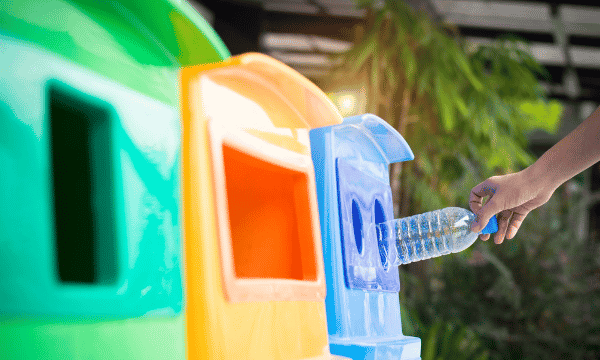
Recycle
Perhaps the most well-known of the “three R’s”, recycling is now commonplace both at home and in the workplace. Most workplaces now have separate bins to segregate paper waste and more industrial workplaces will segregate timber, metals, paper and glass to name but a few. Do not forget that for some items such as batteries and electronic equipment there are legal requirements that ensure these products are recycled and not just disposed of in the general waste. Make sure you know what your obligations are.
There are companies that you can pay to take mixed waste who will separate and sort it for recycling at their depots. If you are short of space or struggle to maintain separate waste streams then this is a handy option, however, this service will cost more than if you recycle at the source. If you are segregating waste in the workplace you should make sure that each waste stream is not being contaminated by staff, i.e. putting cardboard in with the paper. This will increase your costs in the long run as it reduces the quality of the recycled product.
Disposal
Even if you have managed to reduce the amount of waste, inevitably there will be a small amount that you need to dispose of. A waste contractor should be appointed to collect and dispose of both waste to landfill and waste to recycling. Your business is responsible for ensuring that any waste collectors and carriers appointed are registered and take the waste to a registered site. In order to make sure you are compliant:
- Insist on seeing the original copy of their waste carrier’s certificate. If their certificate is not available ask for a ‘copy card’ issued by the Environment Agency.
- Check if they have a valid registration on the public register
What the Law Says
Businesses are required to comply with the Controlled Waste (England and Wales) Regulations 2012. You have a duty of care as a commercial waste producer to make sure that waste is handled safely and only passed to people authorised to receive it. This includes classifying the waste and keeping the waste safely whilst it is on the premises.
Check out the Health and Safety Executive (HSE) website for more information.
If you have a question or enquiry about health and safety, please call the team on 01452 502113 or complete our enquiry form.
Find this helpful?
Signup to our email notifications to receive alerts when we publish new blogs. We promise not to spam your inbox, you will just get a short snappy intro to Health and Safety articles we think you will love.
"*" indicates required fields
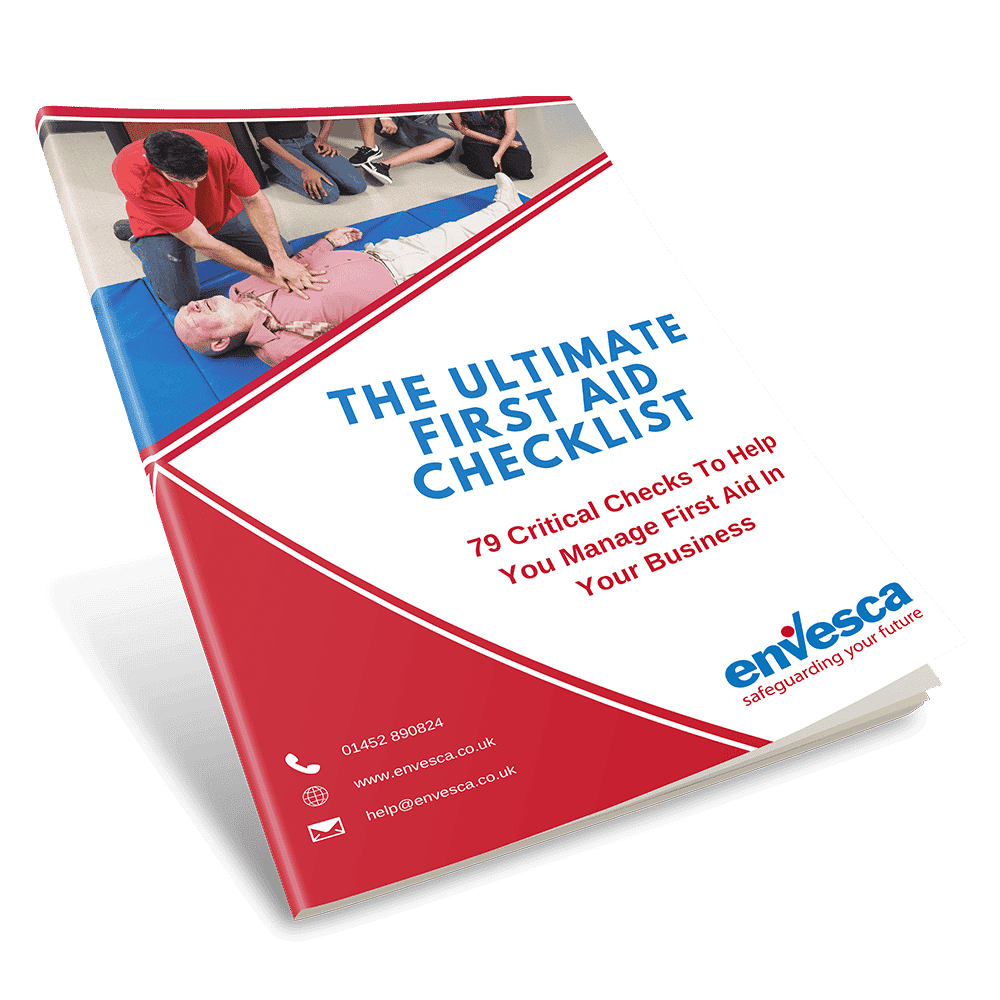
The Ultimate First Aid Checklist
If you are an appointed person or first aider for your company you should carry out regular checks of your business to ensure that your first aid facilities are up to date. This comprehensive checklist will help you ensure you have everything covered! Get your FREE copy now.
If you’ve got a question or query, please contact our super friendly team, they will be delighted to help you!
Simply get in touch via phone or email.
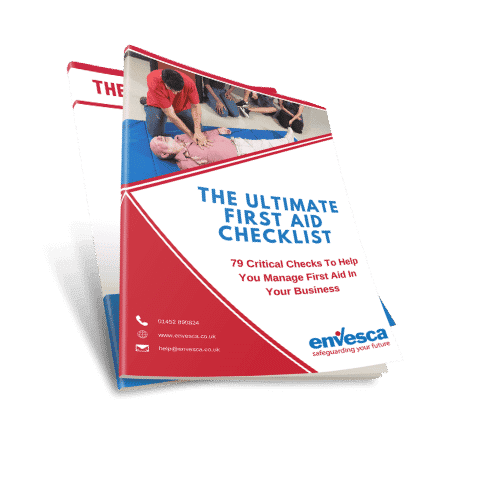
Free
Resources &
Downloads
Informative. Useful. Practical.
Here at Envesca we believe that we are good at giving proactive, sensible and useful advice. Below you will find some free resources that you can download on a host of subjects that will help you and your business.
Training Available
Envesca offer a number of different training courses, which offer advice and guidance on these topics.
